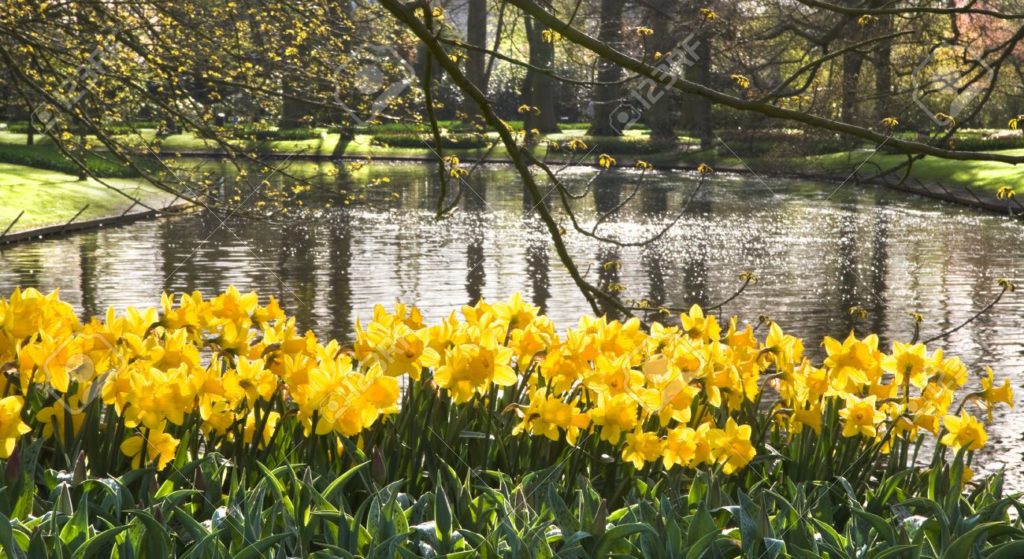
Mnemosyne, [nee-mos–uh-nee], is the Greek goddess of memory, and mother of the Nine Muses by Zeus. This “Invoking Mnemosyne” series is where I share what poetry & prose it is that I’m memorizing as part of my self-education journey.
I was reading through an anthology of poetry and ran across Wordsworth’s “Daffodils” for the first time. It grabbed me. I read it through, then re-read it, then re-read it again…and knew I had to memorize it.
I wandered lonely as a cloudThat floats on high o’er vales and hills,When all at once I saw a crowd,A host, of golden daffodils;Beside the lake, beneath the trees,Fluttering and dancing in the breeze.
Continuous as the stars that shineAnd twinkle on the milky way,They stretched in never-ending lineAlong the margin of a bay:Ten thousand saw I at a glance,Tossing their heads in sprightly dance.
The waves beside them danced; but theyOut-did the sparkling waves in glee:A poet could not but be gay,In such a jocund company:I gazed—and gazed—but little thoughtWhat wealth the show to me had brought:
For oft, when on my couch I lieIn vacant or in pensive mood,They flash upon that inward eyeWhich is the bliss of solitude;And then my heart with pleasure fills,And dances with the daffodils.
The visualization is vibrant: lakes, trees, milky way stars, sparkling waves–a crowd of ten thousand daffodils, dancing!
Amidst all this wonder is solitude–because really that’s what this poem is about. Being alone is not the same as being lonely, but that’s how Wordsworth begins: “lonely as a cloud.” From there it gets better: as a direct result of this lonely experience, he runs across this vast and awe-inspiring meadow of daffodils. He goes from being alone & lonely to alone & happy: “A poet could not but be gay, in such a jocund company.” It was an experience that perhaps would not have occurred if he had been busy socializing within a man-made space, rather than wandering alone in nature with himself.
The last stanza’s complete focus is solitude, onto which the entirety of the poem–“the show”–has showered its “wealth.” Arguably, then, that was the entire point of all that beauty: to enhance his time alone with his mind, be it either spacious or full of thoughts & reflection (“in vacant or in pensive mood”). His “inward eye” is the “bliss of solitude”–of course it is! To spend time peacefully with our thoughts is a fundamental human need, and a pleasure just the same as spending time in the company of others. And it is in this state of solitary, psychological “bliss” into which the physical, worldly beauty from his walk showers his heart with happiness.
And it “dances with the daffodils.”
I think, perhaps, I’ll plant some.
